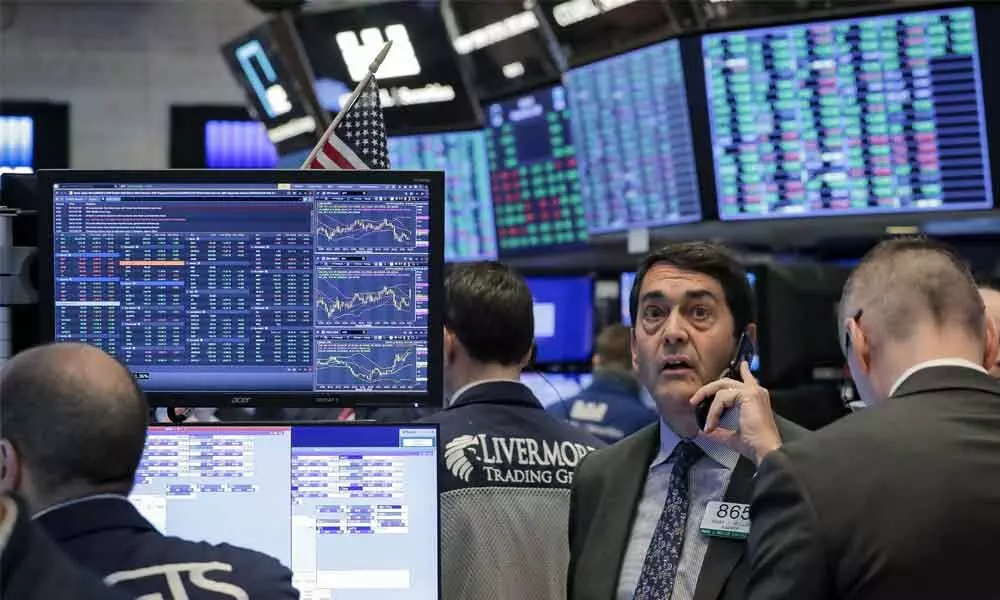Covid-19 & global economic meltdown

Covid-19 has infected over 16,000,00 and led to more than 90,000 deaths as of today, and this global event is still unfolding.
Covid-19 has infected over 16,000,00 and led to more than 90,000 deaths as of today, and this global event is still unfolding. There is no accurate projection so far to assess neither the peak nor the bottom timeline, for this global pandemic impacting billions.
Over 100 nations globally are in a state of lockdown and this has brought the lives and livelihoods of billions to a grinding halt.
Economic recession is a small term, the world today is glaring at an unprecedented economic meltdown. This phenomenon has never occurred before.
There has never been any such precedence, where the entire world's economic activity had to be proactively restricted and contracted through self-imposed national lockdowns. Neither international wars nor any earlier global pandemics have unleashed this kind of freeze on global economic activity as COVID19 has, in just a month.
This unique global pandemic impact has created an uncertainty unknown to human enterprise ever. No one knows when the lockdowns will be lifted globally and when the economic and social activity will resume. That's the unimaginable size of the uncertainty at this point of time.
There is no economy in the world which is not impacted negatively by Covid-19 aftermath. Nations with high economic activity are the worst hit. Top economies of the world are hit severely, and so are the emerging economies.
UN Department of Economic & Social Activity (UNDESA) has projected 1% contraction of world economy by the most modest standards. However, individual national economies will slide much negatively, and their GDP's will contract in higher percentages.
Let's look at some key drivers of this massive economic meltdown underway -
Consumer spend decline
Huge decline in overall consumer spend is impacting the supply chain and production planning. This can lead to a demand-shock led supply-shock across sectors, and if it continues for few more weeks, lowered production will create supply-shock led demand-shock in return.
Not just national but global supply chains are going haywire with collapse of consumer spends and declining demand. This is leading to massive stockpiles of inventory, compounding of cost and negatively impacting the bottom-line of millions of manufacturing and logistics companies.
A full spectrum of this echo-effect with sudden decline in consumer demand, is leading up to a spike in inflation, severe job loss, fall in imports and exports and huge multi-sectoral fiscal distress.
Service sector impact
Service sector is the largest employer in the world currently employing millions. The bump in world economy, since the beginning of 20th century is attributed to the service sector.
Service sector created massive employment and led to a spike in demand for multi-sector products and services, driving further employment and double sizing the economies across the world.
Covid-19 has led to job losses of millions in just 4 weeks of its onslaught. Key sectors like IT, ITES, hospitality, transportation, tourism have been impacted like never before.
There are serious salary cuts in progress to the tune of 50% even in IT / ITES companies, and massive layoffs and job losses in hospitality, transportation and tourism related industry.
While service sector will be the first sector to recoup after the economic reset down the line, the unprecedented job losses currently in this sector has a compounding effect across board and is negatively impacting many mainstream industry sectors already. The real estate, banking, consumer goods sectors are the worst hit.
Capital flow issue
Majority of the top stock market listed companies in emerging nations are funded by FPI's (Foreign Portfolio Investors). The massive withdrawal of these capital infusers from the capital markets will create serious capital distress, especially at the time when the economy needs a restart.
The private banking sector capitalized heavily by FPI's is the worst hit. FPI's pulled out with an expectation of lowered economic activity resulting in lower returns, more NPA's (Non-Performing Assets) and debt distress in the near future.
Banking is a critical sector for recovery and reset of the economy. If this sector takes a big hit with lack of capital flows at the right time, the economic downslide will search for a new bottom.
International debt distress
Most of the emerging nations are supposed to be shining stars for international investment. The huge appetite for international debt, equity and a promise of great returns has turned into a mirage for investors.
Some of these nations are turning into international debt defaulters. Few of the BRICS nations like Brazil, Russia and South Africa are seeing a rapid decline of their currency value to the tune of 20% in the recent times.
Pre-crisis economic slowdown wedded with Covid-19 economic lockdown has become a knockout punch for many developing economies.
However, India is in a healthy position by far in comparison to many of its Asian counterparts. India's current account deficit is quite low and can go still lower with the recent crash of global oil prices.
India's central bank RBI can monetize its fiscal deficit and control the interest rates from spiraling up and facilitate the capitalization of its economic restart.
Uncertain times ahead
Certainty leads to investments and positive capital flows. Uncertain times can't unlock investments both domestically and globally. The imminent challenge before all economies in the world including India is Covd-19 led uncertainty.
No nation is willing to gamble on an immediate restart of their economy, in fact more nations are joining the lockdowns. Asian countries with an exception to China are still to rise in Covid-19 cases and deaths.
Europe is on a steep incline with Italy and Spain leading at the top. USA is scaling its worst peak in reference to cases & deaths, and no one knows if it's the last peak.
India is way behind in the curve but stays aligned to USA and Europe's trajectory so far unless a miracle flattens the curve.
There are three critical answers which can lead the world to an economic restart.
When do we find a vaccine for Covid-19?
When will Covid-19 cases & deaths curve decline?
When will the world reinvest into an economic restart?
Above questions are not easy to answer and that is incrementing the economic uncertainty across the world.
The longer this uncertainty, the harder it is to regain and reshape world economies to the Covid-19 pre-crisis stage.
What now?
Being a cautious optimist, national and regional governments should act with speed and conviction in these times of uncertainty.
Inaction can't resolve any crisis, and Covid-19 is no exception. I suggest some immediate actions governments must take, to counter the decline and be battle-ready to rise, when the tide is up.
Hope for the best & prepare for the worst
Governments should understand the wrath of Covid-19 and make a clear damage assessment to their individual economies. Each nation has its economic strengths and weaknesses and as this crisis unfolds, it is important to know both thoroughly and take necessary and immediate measures.
Containing further community spread and maintaining a strong resistance to reduce Covid-19 cases and deaths is the most important task. Governments should be thorough in their readiness, while hoping for the best and preparing for the worst.
Income support & stimulus packages
In the prolonged periods of economic and social lockdown, the only driver of the economy is 'Income Support' – especially for those at the bottom of the pyramid and those who lost their jobs.
Lack of income support will create possibilities of social unrest, civil disobedience and also a long-lasting economic pain in the system.
Lack of income support from the governments can put 'consumer demand' in the kill-list and make it difficult to restart the economy in the post-crisis period.
'Stimulus Package' is oxygen to the economy in distress. Especially if the lockdown were to continue for weeks and months ahead.
It will prevent multi-sectoral enterprise shutdowns, massive job losses and will ensure continuity, hopeful of future economic restart. It is not just the design of these packages, but effective delivery, which will ensure positive results.
(The writer is the chief spokesperson of the BJP Telangana State unit, a global leadership coach and an organisational strategist)














